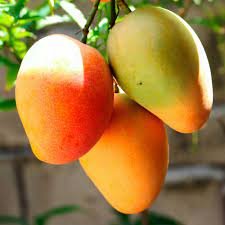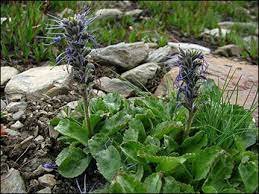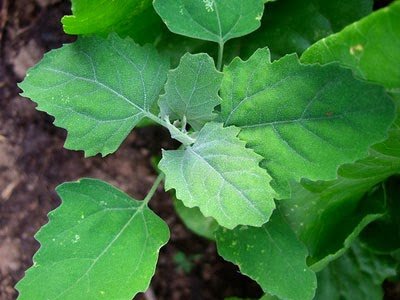Phosphate Solubilizing Bacteria (PSB)
We ViVicrop Farm Science is a company working in the Bio Fertilizer and organic Fertilizer domain.
What are Phosphate Solubilizing Bacteria (PSB)?
Phosphate Solubilizing Bacteria (PSB) are a group of beneficial microorganisms capable of converting insoluble forms of phosphorus into soluble forms, making phosphorus more available to plants. Phosphorus is an essential nutrient required for various biochemical processes in plants, including photosynthesis, energy transfer, and nucleic acid synthesis. PSB play a crucial role in enhancing phosphorus uptake by plants, thereby promoting their growth and development.
Types of Phosphate Solubilizing Bacteria
- Bacillus spp.:
- Bacillus megaterium: Produces organic acids and enzymes that solubilize insoluble phosphates in the soil.
- Bacillus subtilis: Known for its ability to solubilize phosphorus and promote plant growth.
- Pseudomonas spp.:
- Pseudomonas fluorescens: Produces gluconic acid and other organic acids that facilitate the solubilization of phosphates.
- Pseudomonas putida: Enhances phosphorus availability through the secretion of organic acids and chelating agents.
- Enterobacter spp.:
- Enterobacter aerogenes: Releases organic acids and phosphatases that solubilize insoluble phosphates in the soil.
Relevance and Importance
- Enhanced Phosphorus Uptake: PSB improve phosphorus availability in the soil, promoting better nutrient uptake by plants.
- Sustainable Agriculture: Reduces the need for chemical phosphorus fertilizers, contributing to environmentally friendly farming practices.
- Cost-Effectiveness: Lowers input costs for farmers by minimizing the use of synthetic fertilizers.
- Soil Health Improvement: PSB contribute to soil fertility by enhancing nutrient availability and microbial activity.
- Yield Improvement: Results in higher crop yields and better quality produce due to improved phosphorus uptake.
Use and Benefits
- Improved Nutrient Uptake: Enhances the availability and absorption of phosphorus, a critical nutrient for plant growth.
- Better Plant Growth: Promotes vigorous plant growth, leading to increased biomass production and higher yields.
- Enhanced Root Development: Stimulates root growth and branching, improving nutrient uptake and water absorption.
- Disease Resistance: Induces systemic resistance in plants, making them more resistant to diseases and pathogens.
- Environmental Sustainability: Reduces nutrient runoff and leaching, minimizing the risk of water pollution.
Crops Benefiting from Phosphate Solubilizing Bacteria
Phosphate solubilizing bacteria can be used with a wide range of crops, including:
- Cereals: Wheat, rice, maize, barley.
- Legumes: Soybeans, chickpeas, lentils, beans (complementing Rhizobium biofertilizer for overall nutrient balance).
- Vegetables: Tomatoes, potatoes, carrots, cucumbers, peppers.
- Fruits: Bananas, citrus, apples, grapes.
- Non-leguminous Cash Crops: Cotton, sugarcane, coffee, tea.
- Horticultural Crops: Flowers, ornamental plants, turfgrass.
- Oilseeds: Sunflower, safflower, canola.
Application Stage
Phosphate solubilizing bacteria can be applied at various stages of crop growth:
- Seed Treatment: Seeds are coated with PSB before planting to ensure early colonization and establishment of beneficial microorganisms.
- Soil Treatment: PSB can be mixed with the soil or applied as a soil drench, ensuring the bacteria are present in the root zone.
- Root Dipping: Seedlings can be dipped in a PSB solution before transplanting to ensure root colonization by the bacteria.
- Foliar Spray: In some cases, PSB can be applied as a foliar spray to provide additional phosphorus directly to the plant leaves.
Benefits at Different Crop Stages
- Germination and Early Growth: Enhanced root development and early establishment due to better phosphorus availability and microbial activity.
- Vegetative Stage: Improved plant vigor and growth, leading to robust plant development and increased resistance to stress.
- Reproductive Stage: Better flowering and fruit set, resulting in higher yields and improved quality of the produce.
Conclusion
Phosphate solubilizing bacteria (PSB) are valuable components of sustainable agriculture, offering numerous benefits such as enhanced phosphorus availability, improved plant growth, and increased crop yields. Their application to a wide variety of crops at different growth stages ensures effective colonization by beneficial bacteria, promoting overall plant health and productivity. By integrating PSB into crop management practices, farmers can achieve better yields while supporting ecological balance and environmental conservation.









